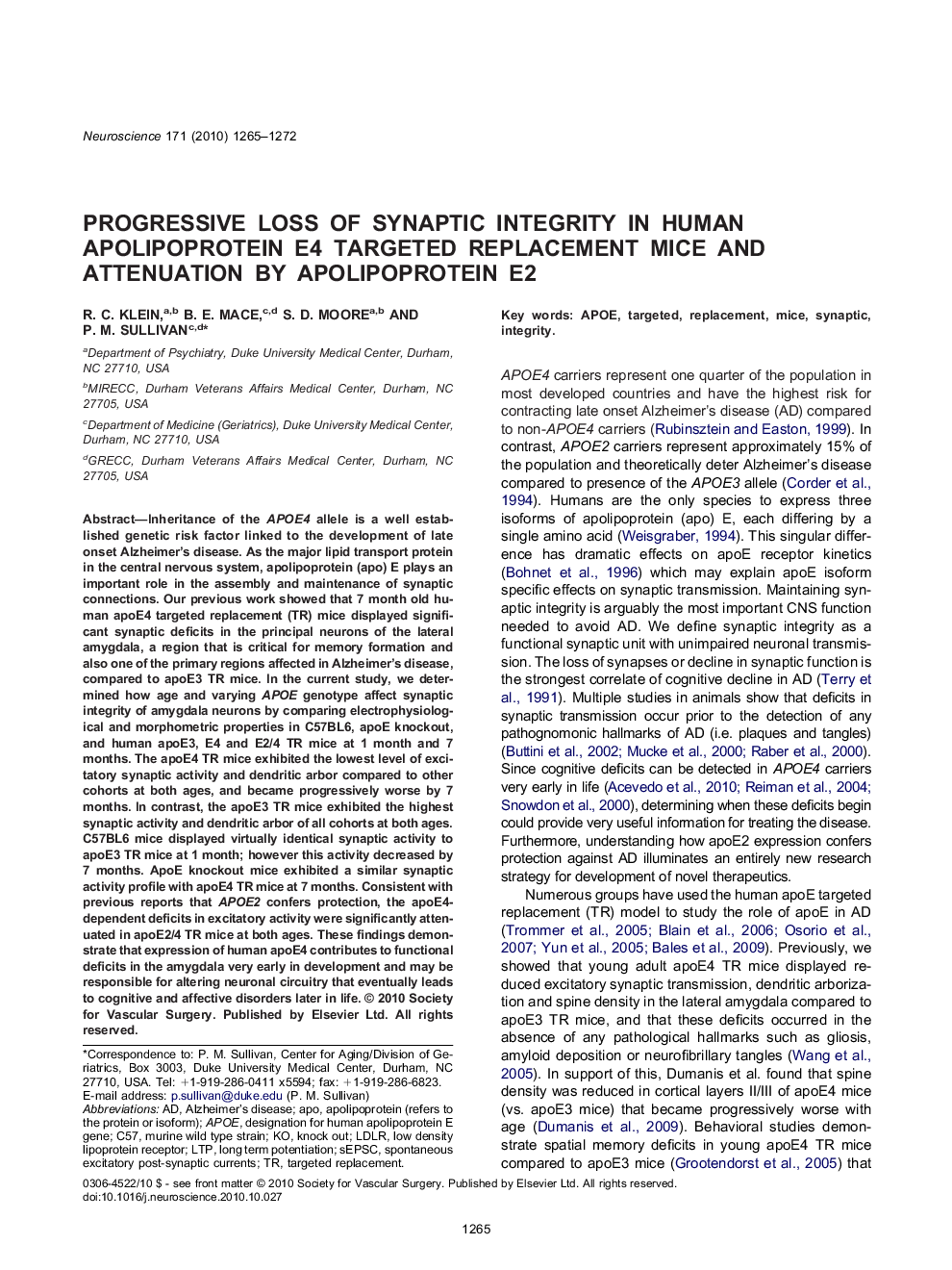| کد مقاله | کد نشریه | سال انتشار | مقاله انگلیسی | نسخه تمام متن |
|---|---|---|---|---|
| 4339200 | 1295738 | 2010 | 8 صفحه PDF | دانلود رایگان |

Inheritance of the APOE4 allele is a well established genetic risk factor linked to the development of late onset Alzheimer's disease. As the major lipid transport protein in the central nervous system, apolipoprotein (apo) E plays an important role in the assembly and maintenance of synaptic connections. Our previous work showed that 7 month old human apoE4 targeted replacement (TR) mice displayed significant synaptic deficits in the principal neurons of the lateral amygdala, a region that is critical for memory formation and also one of the primary regions affected in Alzheimer's disease, compared to apoE3 TR mice. In the current study, we determined how age and varying APOE genotype affect synaptic integrity of amygdala neurons by comparing electrophysiological and morphometric properties in C57BL6, apoE knockout, and human apoE3, E4 and E2/4 TR mice at 1 month and 7 months. The apoE4 TR mice exhibited the lowest level of excitatory synaptic activity and dendritic arbor compared to other cohorts at both ages, and became progressively worse by 7 months. In contrast, the apoE3 TR mice exhibited the highest synaptic activity and dendritic arbor of all cohorts at both ages. C57BL6 mice displayed virtually identical synaptic activity to apoE3 TR mice at 1 month; however this activity decreased by 7 months. ApoE knockout mice exhibited a similar synaptic activity profile with apoE4 TR mice at 7 months. Consistent with previous reports that APOE2 confers protection, the apoE4-dependent deficits in excitatory activity were significantly attenuated in apoE2/4 TR mice at both ages. These findings demonstrate that expression of human apoE4 contributes to functional deficits in the amygdala very early in development and may be responsible for altering neuronal circuitry that eventually leads to cognitive and affective disorders later in life.
Research Highlights▶Human APOE2 attenuates synaptic deficit in apoE4 mice. ▶APOE4 synaptic deficit present in pubescent mice. ▶Synaptic deficit worsens with age. ▶APOE alleles function in co-dominant manner.
Journal: Neuroscience - Volume 171, Issue 4, 29 December 2010, Pages 1265–1272